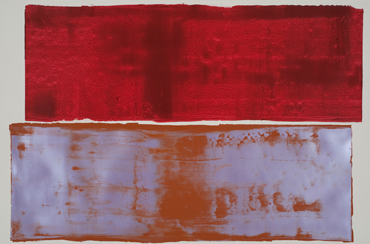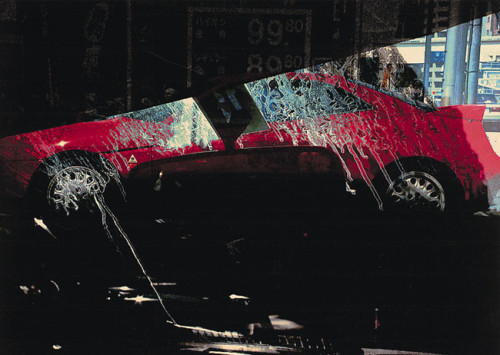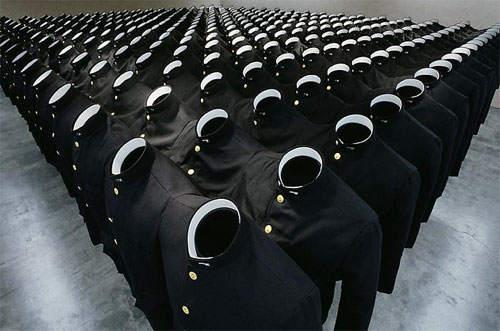
Baihrava, Bhairava is the fierce manifestation of Lord Shiva associated with total destruction.
“The suicide sprawls on the bloody floor of the bed-
room;
It is so — I witnessed the corpse — there the pistol
had fallen.”
Walt Whitman, Leaves of Grass
“…we now know that a rejuvenated CIA has run a full-scale torture program, kidnapped terror suspects off global streets, and still oversees drone assassination campaigns in Pakistan and Yemen. In addition, it continues to resist Congressional oversight of its torture activities. As yet, the Agency, tasked with “vetting” a 6,000-page report on its “interrogation methods” prepared by the Senate Intelligence Committee, has refused to allow the release of any part of the account. Even Dianne Feinstein, the committee’s chair, often considered the “senator from national security,” was moved to offer an extraordinary denunciation on the floor of the Senate of the CIA’s interference with committee computers.
Recently, the Washington Post reported some leaked details from the report the committee has been struggling unsuccessfully to get released, including information on a previously undocumented form of CIA torture: shoving a prisoner’s head into a tub of ice water or pouring that water all over a person’s body. (Immersion in cold water is a torture method I first came across in 1984 when interviewing a Nicaraguan who had been kidnapped and tortured by U.S.-backed and -trained Contra guerrillas.)
We don’t have anything like the full story of the CIA’s involvement in torture, and the CIA is only one agency within a larger complex of agencies, military and civilian. We can’t dismantle what we can’t see.”
Rebecca Gordon
“Dwelling in the proper sense is now impossible. The traditional residences we grew up in have grown intolerable: each trait of comfort in them is paid for with a betrayal of knowledge, each vestige of shelter with the musty pact of family interests. …The sleepless are on call at any hour, unresistingly ready for anything, alert and unconscious at once.”
Adorno
“In 1944 we lived near Tel Aviv market. One morning my wife saw a young man go around talking to all the women selling produce. Some he left alone, but others had paraffin poured on the vegetables and their eggs smashed. My wife, who had just come from South Africa, couldn’t believe it. “What’s going on?” she asked.
It was simple. The man checked if the produce was Hebrew or Arab, and destroyed Arab produce. Now, this behaviour was still on a small scale and some Zionists were still talking like left wingers. Zionist publishers printed Lenin and Trotsky, for example.
But the antagonism to the Arabs remained central. No Arab ever entered the kibbutz movement, the so called “socialist” collective farms. The majority of Jewish-owned land belonged to the Jewish National Fund, whose constitution forbade Arab tenants. This meant in whole areas the original Arab populations were driven out.
When I left Palestine in 1946 Tel Aviv, a city of 300,000, had absolutely no Arab residents. Imagine arriving in Nottingham, a similar sized town to Tel Aviv, and finding no English people.”
Tony Cliff
I was asked this week about culture, at a dinner with my wife and two friends who are violinists. Both teach, naturally enough. Both were talking about the growing lack of seriousness about the arts. In one sense, art must always have moral gravitas to be any good. The vocation of artist, of whatever sort, is a choice that entails moral courage. Now, that sounds sort of like inflated rhetoric, and one can certainly find almost infinite examples of moral corruption in the arts. However, that moral underground currency also still exists. It’s just that such work, any serious work, tends to be marginalized and made invisible if possible. Andrew Levine had a piece at Counterpunch on the “liberal media” (meaning everything that is not FOX News), and in particular NPR (and here it is useful to remember Curtis White’s essay on the ‘middle mind’). Levine writes:
“Nevertheless, on Morning Edition, it was taken for granted that Team Obama is on the side of the angels, and that Putin is a new Hitler. Hillary Clinton said so, after all, and she is always right…But why is there not more outrage? The short answer is that no matter how out of sync with reality the bipartisan party line is, and no matter how dangerous it may be, liberals are still cutting Obama slack — and moving on.This, as much as any structural property of the media system, is what enables corporate media — and NPR, which is corporate in spirit, even if it is technically something else — to do “a heck of a job,” as George W. Bush, said in praise of “Brownie,” Michael D. Brown, the man in charge of “emergency preparedness and response” in New Orleans after Hurricane Katrina.
As a Fourth Estate, NPR and other “quality” outfits plainly are Brownies, one and all. For informing and enlightening, they get a C-plus on a good day – like George Bush at Yale.”
Now, this is all rather obvious, but it is worth looking at in light of one of the bloodiest weeks in recent memory. As Israel continues its use of various illegal weapons (which appear to be variants of DIME, and also of white phosphorus, and its worth noting that Israel has been employing DIME {dense inert metal} since as early as 2004) in densely populated areas. (The extraordinary Dr. Mads Gilbert of Norway who works in Gaza, has written on this several places, including a suggestion there are new versions of tungsten bombs now being used).
In Israel we have a society that can stand on the hillside and watch war crimes as if they were TV has probably reached a nadir of moral failure.
Of course, the U.S. is exactly as morally bankrupt. Detroit is the domestic Gaza in one sense. The vast U.S. prison system is Gaza in another sense. The Zionists on the hill in Sderot, watching war crimes carried out across their horizon, are much like the American public watching water being turned off in the homes of the poor in Detroit. The police choking an unarmed man to death in NYC, on Staten Island, is not a lot different than the IDF soldiers shooting young Arab men. SWAT teams kicking in doors in New York, Los Angeles, Atlanta, Albuquerque, or Philly is much like IDF forces kicking in the doors of Palestinians. And both are like the U.S. Marines carrying out house to house searches in Mosul or Baghdad, after kicking in the doors. And these kicked in doors happen daily, multiple times, across the planet. And in each case the jackboot of authority is Western, and usually from the U.S.

Louise Lawler
But the culture of the West today is one that trivializes, and it is, to put it simply, such trivialization which undermines the sense of moral purpose, for compassion, and for the outrage in plain view of inequality. Seriousness scares the new fascist, a fascism anchored, cognitively, on trivial and infantile amusements. It is the U.S. which orchestrated a coup that removed Jose Manuel Zelaya, democratically elected, from the Presidency of Honduras, and replaced him with the thuggish and corrupt Juan Hernandez, and this almost totally unreported story is the obvious cause of a flood of traumatized children fleeing north to the U.S. border, where they are met with holding pens, concrete floors to sleep on, and reams of invective from both parties and the mainstream media. And where Obama hurries plans to send them back home. But it is simply another story, placed alongside an op-ed (The Guardian, July 19 this year) from a member of Pussy Riot decrying the evil that is Vladimir Putin.
During my dinner discussion the other night, the topic of “encouragement’ came up. And I have said this before, the culture of ‘constructive criticism’, of reducing the creative act to self help therapy. What this is, really, is a cultural flat-lining. Whatever you do, you are OK. Well, almost whatever you do. Because seriousness is not OK. Lighten up. Don’t fixate. It’s not healthy. The drive to be an artist means you don’t need encouragement, nor do you need constructive criticism. You simply need criticism, and instruction from those who know more about whatever you are trying to do. The narcissism of art as therapy is, strange as it may sound, perfectly in line with all thinking predicated on self interest. The Ayn Rand culture. Everyone gets a winner’s ribbon, you get a commendation for just ‘trying’, just participating. Because you are taking part in the Spectacle. There will be winners, and losers…and well, a lot more losers, but that’s the natural order of things.

Pedro Calapez
The artist studies his craft, he studies the history of his art form, and he develops a discipline. He or she does not need to be encouraged. The artist is driven in part by an oppositional stance vis a vis the status quo. Creating is, in many ways, in and of itself, a form of protest to the world as it is.
Frederich Engels wrote that today’s society “breeds hostility between the individual man and everyone else.” That was in 1845. I said in the last posting here, that today everyone who is not of the ruling class is an outcast. Must function like an outcast, and as a criminal. The new growth industry that is prison building is a material expression of an inner state, an interior architecture that reinforces the idea of separation, isolation, and containment as part of an equation that starts with security. The trivial, the making everyone the same idea contains, of course, a contradiction. Everyone is the same, except for the winners. The winners are different, but THAT difference is alright. It is alright because it is viewed as a dispensation from God, somehow. Security is linked to a structure of control over (per Loic Wacquant by way of Max Weber) “the elaboration of legislation, the enforcement of public order, the armed defense against external aggression, and the administration of hygienic, educational, social and cultural needs.” This model is taken for granted. All the way down to cultural needs.And it is worth noting the ways in which ideas of morality are connected to the production of and manufacture of culture. And how all of this is linked to a destruction of difference, of creatitivity as an idea.

Abandoned Southwest Florida resort. Mila Bridger photography.
Adorno, following upon the quote at the top, said “It is part of morality not to be at home in one’s home”. He was suggesting that consumer goods, so abundant, and so disposable at the same time, creates a paradox, that one must have ‘things’ to survive and not fall into desperate dependency on the system, but at the same this need leads to, as he put it, “a loveless disregard for things which necessarily turns against people, too.” The ethos of disposability has most certainly, in the ensuing half century since Adorno wrote this, turned against people..though especially the working class. People are as trivial as cell phones or a new track suit. In fact, the fetishizing of certain “things”, new cars for example, has pushed the perception of individual human value even further down the scale. Advanced reification.
One of the many factors that mediate memory is the constant production of new technologies. The memories of standing in line to cash a check at the bank, or going to the library and using the Dewey decimal catalogue, are not experiences (along with a thousand other relatively banal experiences) that will passed on to the next generation. Each new technology isolates one generation from the next. When Adorno wrote of the morality of letting go of this false identification with home, with home as the titular site of identity, he was examining the atrophy of the sense of private life, of traditional parameters for the bourgeois individual. And he knew quite acutely the difficulties of finding a way to exist sanely within a society of property relations. But the fact of consumer abundance, the faux choices for shopping, are also now, additionally, eroded by bank ownership of everything you *think* you own. The fact is, when you go to buy a new car, you are not being sold a car, you are being a sold a ‘deal’ for buying a new car. You are buying financing. But that aside, I think the point I’m trying to get to has more to do with the trivializing of human relations.

Kikuji Kawada, photography.
The U.S. prioritized military solutions from WW2 onwards. It found enemies wherever needed, from communists in Central America, to Muslim radicals in Afghanistan, or Iraq. It has armed wars, often on both sides, throughout the world. It has its primary sub contractor in Israel. This is extreme alienation quotient in modern Western life. Violence. The loss of memory, the mediation of a reified relation to house and home, to residing anywhere, is shaped by the constant need for violence. The ultimate distraction, the ultimate expression of disposibility. The architecture for many in the West, when viewing the attack of Israel on Gaza, the clearing away rubble with bulldozers, and the clearing away of people, the building of a fence, is that of re-decoration. Time for new drapes, new tables and lamps. Disposible. You can always go buy new Palestinians if you end up not liking the settlers.

Moshe Dayan in Viet Nam, 1966
The theatre of repression, as Arline Mathieu described it, is the increasing reliance on medical justifications and explanations for poverty. Poverty is called, or labelled homelessness. The focus is on the mental health of those left homeless, and the implication is their medical condition created their *desire* to be homeless. But again, homosexuality, prostitution, drug addiction, have all at various times, come under the medical umbrella. In this theatre of repression the doctor on-call is the state authority structure. The decorator moving out those tacky so ten minute ago homeless riff raff (or Palestinian, or urban black teen, or latino, or south Asian, etc). Clear out the garbage. Sanitize what is left. Re-purpose the junk (gentrification) as stylish, and the garbage is invisible. On a global stage, we could well get into the mental mapping of other nations and cultures as they exist for the West.

Rachid Koraichi
Now, this is not to say that large swaths of the populace in the West today are any longer buying their pay-TV subscription. And one of the trends is to make everyone’s life the latest reality TV show. This is the representation, the manufacture of ideological backdrops for daily life, the constant amnesia producing mechanisms of the Spectacle. And still, hundreds of thousands of people are out in the streets protesting. The conclusion is that people both reject, and embrace the illusions of identity. The fact that Israeli war crimes are so obvious is the only reason for the relatively large protests. But in fact, the liberal college student who thinks “Battle of Algiers” is really cool, will support Israel because the media and Hollywood have done their best to invest these monsters with “cool”, and the FLP suddenly is stylistically similar to Irgun or the Stern Gang. A friend who teaches at a liberal arts college in the US had a student, a girl student, squeal…”Netanyahu is a fucking rock star”. The same confusions exist with Rwanda, of course, and certainly the former Yugoslavia. Style matters, not political history. Keith Harmon Snow clarifies African propaganda and plunder : http://libya360.wordpress.com/2012/03/07/keith-harmon-snow-the-plunder-and-depopulation-of-central-africa/
So, the strange Alice through the looking glass world in which Netanyahu and Kagame and Museveni are allies, even cool allies, is the world of historical revisionism, and it is a revisionism that actually has no text. The inscription of support is written on the amnesiac citizen who barely knows his own congressperson. The Serbs are monsters, Milosevic an evil “butcher”, and yet of course there was no evidence of this. What there was in place of evidence was a marketing narrative (operative in TV shows most noticeably). The most common response I get when the topic of Milosevic comes up is something like this; ” well, ok. but he did *something*, it cant all be made up” and so on. The lesson is: if you use propaganda, saturate the market.

Matthias Grunewald, early 1500s.
But let me get back to this idea of a cleansing of the poor. Where sixty years ago, black people were still being lynched in the U.S., today they have returned to a place in the cognitive mapping that suggests they can do without water. But the re-decorating of the house includes the idea of subjugation to the authority (which is dressed up in the neo liberal free market tuxedo). Ayn Rand again. Individual as heroically responsible. That word, *responsible* is the ugliest word in English. The disinfecting means taking out of sight. Relegating to TV shows. But it also conjures up certain images that resonate with Christian millennialism, and this is hardly an accident. The cleansing of society is in preparation for the second coming. This was a hugely popular part of Nazi mythology. The Third Reich was after all, to rule for a thousand years. The kitsch Christian symbology at work these days in pop culture seems unlimited. There are of course Jewish and Hindu millennial systems, and even Zoroastrian millennialism. In fact Zarathustra is likely the first to lay out this notion of tribulation, armegeddon, and Rapture. The point is, the ideological class divide is given a sort of pseudo-religious vibe by breaking out a lot of arcane jargon and validating the craziest of Christian extremists as somehow worth taking seriously.

Nahum B. Zenli
My own experience in the U.S. the last few years (when I have popped in, because I cant live there anymore) has been that the average white male is now, in a sort of accumulative dissolution of mental faculties and emotional deprivation, a knotted ball of anger and seething resentments. And it seems to extend to the left as well.
During the Viet Nam war there was an effective and vibrant anti war movement. Today, I think there are probably close to as many people who object to U.S. military adventures, to the Imperialist project to dominate, but what seems missing on one level is the cultural expression of it. Of course there is also a far more draconian system of policing, and surveillance. And those two factors are obviously intertwined. The rise of the totalitarian status quo is partly about destroying art and culture. I remember Robert Bly and Ginsburg, Merwin, Stafford, and a dozen other poets doing readings. Bly in his Nixon mask, and I remember the sense of an anti establishment vibe to rock and roll, and I remember radical theatre experiments, often pointedly political, and today I feel none of that. It feels as if in place of the radical artist we have JayZ and his Israeli start up company, or Scarlett Johansson pimping her Israeli soft drink. James Garner died this week, and I remember him taking part (though I was only 12), with Brando, James Baldwin and others on the march on Washington in 1963. Garner once said even when Reagan was head of the Screen Actor’s Guild, he had to be told what to say, like a puppet. Garner was a deceptively good screen actor, effortless and expansive. His death feels somehow another marker for the end of a certain time.

Bread and Puppet Theatre, 1972, Protest march against Viet Nam war.
“Galway Kinnell and I sometimes joined to do a series of readings. Once in upstate New York we gave three readings in one day, flying from Albany to Syracuse to Buffalo. That night we ended up at a diner. Suddenly a drunk in the diner, not knowing anything about us at all, said, “You want to know what I did during the Korean War?” “Well, what did you do?” “I was a rear gunner. We were coming back from a bombing raid, and the pilot for some reason flew right down the main street of this little Korean town. I had some ammunition left. You know what I did? I lowered my guns and shot every Korean I could see walking on either side of the street. What do you think about that? Why did I do that?”
That’s what that time was like. Old stuff came up.”
Whatever one wants to call it, the collective psyche, or the Zeitgeist, but there is a feeling of a deep hollow starving soul out there today. Old stuff is *not* coming up, its being pushed down further and under necessarily greater pressure. The horror of what Israel is doing this week feels like that demonic monster that rises at times to make the hell realm material and palpable. The crimes of Empire. This stuff drives many mad. The artists I knew when I was young are mostly gone. Either insane, or their souls died. Sometimes perhaps we don’t know we’ve died. Perhaps this is one partial reason for the persistence of Zombie images. The walking dead.
It is a culture in which the authority structure both consciously, and almost de-facto, encourages vigilantism. This is the public shaming, and often the vilification takes more physically abusive forms. The dread and alienation of what passes for middle class life, in the modules of conformity called houses, finds easy outlet in a lynch mob mentality. (County Fairs across the country now feature a sex offender stall where visitors can, while eating cotton candy, browse for registered sex offenders living in their neighborhood. Suffice it to say hundreds of clerical errors have been recorded and mistaken identities are common. Not to mention the fact that a single offense from thirty years ago, often of a minor variety, stamps the convicted for a life of flight). Snitching is now institutionalized, as I wrote last posting. It is within “sex offenses” however that the frayed model for familial unity is most threatened (in the abstract). There is titillation too, of course. But mostly, it is the as the role of symbolic sacrifice that the sex offender most clearly fills. In California there is a proposition under consideration to house sex offenders in a “Sex criminal zone” in the Mojave desert. The allegorical implications make one’s head swim. This is penology as risk management, too. As Loic Wacquant writes; “This new policy toward sex offenders…prioritizes the retribution, incapacitation, and stringent supervision of entire categories of convicts defined statistically through aggregate probabilities of deviant behavior. In this regard Megan’s Laws and kindred measures fuse the instrumentalism of the *new penology* of stochastic management and selective neutralization with the emotion driven ferocity of punitive populism.” Market failures, make them into market successes (private prison construction remains a growth industry). The disposible population is placed out of sight, and yet can be utilized as slave labor and used statistically to fill up beds and therefore create more financing of prison construction projects. Not to mention ever enlarge the bureaucracy of punishment. Additionally, the infusion of Christian apocalyptic imagery. Cast them into the empty desert to wander alone, beneath the furnace like sun, serves to legitimate a populism of vindictive never ending punishment, without even bringing psychiatry into the loop.

Mayakovsky. Photo by Rodchenko.
The lack of political consciousness, of an avant garde of radical rejection of establishment values would and could create narratives in which someone besides the *victim* of the crime or the cop were the protagonist. The shallowness of this sentimental kitsch reflects the maudlin consciousness of forgetting, and the deification of warrior cop.
Push that material down further. Push it down and keep the lid on. No matter what.
“the hell of America’s unacknowledged, unrepented crimes that I saw in Goldwater’s eyes
now shines from the eyes of the President
in the swollen head of the nation.”
Robert Duncan
“the staff sergeant from North Carolina is dying—you
hold his hand,
he knows the mansions of the dead are empty, he has an
empty place
inside him, created one night when his parents came
home drunk,
he uses half his skin to cover it,
as you try to protect a balloon from sharp objects. . .”
Robert Bly
The Teeth Mother Naked at Last

Do Ho Suh

“And I have said this before, the culture of ‘constructive criticism’, of reducing the creative act to self help therapy. What this is, really, is a cultural flat-lining. Whatever you do, you are OK. Well, almost whatever you do. Because seriousness is not OK. Lighten up. Don’t fixate. It’s not healthy. The drive to be an artist means you don’t need encouragement, nor do you need constructive criticism. You simply need criticism, and instruction from those who know more about whatever you are trying to do. The narcissism of art as therapy is, strange as it may sound, perfectly in line with all thinking predicated on self interest. The Ayn Rand culture. Everyone gets a winner’s ribbon, you get a commendation for just ‘trying’, just participating. Because you are taking part in the Spectacle. There will be winners, and losers…and well, a lot more losers, but that’s the natural order of things…The artist studies his craft, he studies the history of his art form, and he develops a discipline. He or she does not need to be encouraged. The artist is driven in part by an oppositional stance vis a vis the status quo. Creating is, in many ways, in and of itself, a form of protest to the world as it is.”
I agree with this entirely, but one question I still have is what is the ‘there there’ in terms of what great art is meant to achieve? What purpose does it serve? I’m asking this rhetorically, since I do feel art to be important to daily existence, needless to say. My only issue is that when you say great art can’t be ‘contained by analysis’ it sort of seems as if one is replacing one form of relativism with another. You’re replacing the ‘New Left’ relativism with, I don’t know, ‘art school’ relativism I suppose where any piece of abstract art produced by a student is ‘interesting’ and ‘intriguing’ and ‘raises questions’. It becomes great only because it ‘awakens’ and ‘throws people off guard’. So in that sense I do feel there needs to be a certain there there. For instance, Ozu’s due to his sociological explorations of postwar Japan, and Faulkner remains compelling due to how dissects the inconsistencies of the society of the Deep South in the early 20th century, and so on. So these artists are great in how they utilize aesthetic devices in order to explore concrete concepts that invariably remain universally applicable. In other words, there’s a ‘there there’ (i.e. this work is great because of X, Y, and Z, not just because it awakens or is interesting or disrupts the status quo for the sake of doing so.) I understand the impulse to say great work can’t be contained by analysis but taken literally it opens the floodgates and inevitably leads to stuff like Warhol and third rate Picasso, because you know, it’s art because tha artist says so. As much as I resent a state of affairs I do feel a certain level of cultural arbitration and elitism (not reactionary-ism, which IS different from elitism) is a necessary evil for enabling great art to get made. The New Left that you so often bemoan on this blog, rightly that is of course, is responsible for the current state of affairs in the arts, but I certainly don’t believe they’re working in collusion with the ruling class. They hate the ruling class just as much as you do but invariably support without even meaning to or realizing it. People can be well-intentioned even if they’re views are flat out wrong.
I’m not calling for John Simon-style “stodginess” not at all, but what kind of cultural climate would need to be facilitated in order to foster the creation of more Faulkners and fewer Harings. When someone like Keith Haring is proclaimed as a great artist where’s the incentive for someone like Faulkner or Antonioni to come in and create. For someone to make films like Antonioni or even those of early Godard would be seen as “naive” today, because “we live in a postmodern world”. In other words, “great art” is seen as naive concept, because it implies a hierarchical idea of culture that’s incompatible with the postmodern zeitgeist that produces mumblecore, so a child of Antonioni or even Kafka would be dismissed as a ‘naive Romantic’ for aspiring to create truly great art.
I’m not calling for John Simon-style “stodginess” not at all, but what kind of cultural climate would need to be facilitated in order to foster the creation of more Faulkners and fewer Harings? When someone like Keith Haring is proclaimed as a great artist where’s the incentive for someone like Faulkner or Antonioni to come in and create?*
So to conclude, the greatness of a Bunuel or a Bresson is obvious and apparent to cinephiles just as the greatness of Kafka, Faulkner, or Dostoevsky is obvious to bibliophiles, even if not to the common reader whereas only the ‘artist’s intent’ justifies the work of a Frank Stella or of much of Duchamp, so on some level, yes, I do think a work of art in any medium needs to speak for itself in such a way that its greatness is obvious to connoisseurs of that medium. In order for a work to disrupt the status quo it first needs to be great. Otherwise, it defeats its own purpose.
@remy. I suppose, on one level, only one, these were questions (well, put another way) that motivated me to write this blog. I cant really answer…..because Id have to interrogate the questions, in a sense. But art has no *purpose*. Its purposelessness is its purpose in a sense, certainly its liberating potential lies within its role as a negation of purpose.
I dont mean this in any patronizing way, but Adorno’s Aesthetic Theory remains the definitive text from which to start this discussion.
*great art*….well, certainly meaningless in one way, but not for the reasons usually provided. Culture is important, crucially important. And its being erased from today’s societies of the west.
I’d say that *culture* as a frozen canon of works that are beyond interrogation and question is very different from *culture* that involves critical and philosophical engagement with its connections to the deepest meanings of life. It’s same with “great art” — I do NOT believe that all art is equal and that aesthetic excellence or seriousness does not exist, because that would be saying that using art to investigate the most profound questions of this world is something that’s not worth even considering — but to me it’s the essence of aspiration towards engagement with the deepest meanings of life, as an *activity*, that makes “great art”, and NOT a list of works or some ritualistic prescriptive rules.
That’s why nothing revolts me more than, for example, Harold Bloom-esque idolaters of Shakespeare, because they actually feel stupendously disrespectful of Shakespeare. It’s idolatry of Shakespeare without sharing in the least, or even feeling the slightest sympathy with, his wonder and curiosity towards the world and his compassion for all aspects of human nature. It’s using a statue of Shakespeare to whack “rubes” over the head so one can feel better about oneself. Harold Bloom always sounded like a vile, insecure man who uses a priestly hectoring tone to mask a immature schoolboy attitude towards Shakespeare, which is one of “my daddy can totally beat YOUR daddy up!”
I think we can contrast Shakespeare’s attitude towards art in, for example, A Midsummer Night’s Dream. He ribs Bottom’s inept theatre troupe quite mercilessly, but never in a cruel way. But at the end of the play, he still allows dignity to the players and honours their striving towards beauty rather than their falling short. And he captures some sort of mystery, really, when he has Oberon (or Titania?) declare that, despite how jumbled the performance was, he still couldn’t help being moved a little by the attempt. I think this is a great illustration of what it means to honor beauty as a process rather than as a frozen result.
yes, the harold bloom tendency is really reactionary. And its this sort of instrumental thinking (for thats what it is) that is so destructive.
Exir:
Your comment about seriousness is interesting and it’s sort of why the whole Andrew Sarris concept of criticizing a work for “strained seriousness” grates, at least for me, because it almost comes across as anti-art in a sense. It sort of says that art is great as long as it doesn’t aspire to be “art”. Sarris has value in many ways to be sure, but there was certainly a preference there for the “humble artisan” over the “free reigning artiste”. People have to constantly pretend artists don’t have egos. Why are “seriousness” and “heavy handedness” a bad thing if the final result remains commendable. It’s one thing if you strain for seriousness and fail but often times artists are criticized for doing so regardless of whether they fail or succeed. I’m sure Sarris would have placed something like Red Desert in his “strained seriousness” category. So why the preference for art that’s ‘self-effacing’ in a sense?
Well, there’s the very real issue though that most prestige “art-house” products in US cinema engages in “strained seriousness” as a codified set of what John has called here on his blog “prestige effects”. And those effects, in short, are there not for any aesthetic purpose but as a sort of preemptive command to stave off any kind of critical engagement with the film. They stamp the film as a corporate product while, at the same time, are structured, formally, in such a way that any criticism of it can be explained away as part of a nebulous “purpose” and “style” (even though in 99% of these cases it’s abundantly clear that what’s at play is an anti-purpose and anti-style). It’s hard to illustrate without examples from specific films, though.
They’re to the intellect what Hollywood sentimentality is to the emotions.
So context matters, but, otherwise, I do agree.
But you’re right about seriousness — there’s a kind of default assumption in contemporary criticism that art should not deal with any questions of any consequence — that questions of consequence are somehow naive — which ties into the culture of irony; and what they really boil down to is a deterrent from really questioning the world we live in, which suits capitalism completely
Well I’m not going to disagree with you about “prestige effects”, but there certainly is a ‘precautionary’ tendency in certain circles to dismiss anything ‘heavy’ or ‘ambitious’ as being guilty of said ‘prestige effects’. In other words, they’re throwing the baby out with the bathwater, although I hate using that expression, since I find myself applying it way too often to make sense of things. I certainly don’t think Tarkovsky or even Bergman is a case of ‘less than meets the eye prestige effects’, although the latter of the two certainly has his faults, even if he’s made some fine films. “New” Malick or Almodovar, sure. Steve McQueen, absolutely. So i think it’s simply a case of making a more concerted to separate the wheat from the chaff.
Agree completely with you. I think art HAS to be ambitious. It has to want to achieve something. Now whether it succeeds is another matter, but criticizing ambition as being a priori bad is something that immediately makes me suspicious. Because it just seems like an injunction not to think, not to feel, not to do anything out of the ordinary. It’s part of the aggressive “ordinarisation” of the texture of life under neoliberalism, I feel.
And yeah, I have no idea what happened to “New” Malick. He just seemed to fall off the cliff, artistically speaking. I loved Days of Heavens. And Badlands. But WTF was The Tree of Life all about, I still have no clue. I turned it off 30 mins in because it was looking like a New Age infomercial and I see way too fucking much of it on TV already.
Well, I’m not a particularly huge fan of the word “ambitious”, since its usage, in my humble opinion, can, but not always, have reactionary implications. But art should be executed in a confident manner. I don’t know to put it, but it should know what its doing. Mind you, art doesn’t necessarily need to tackle “big ideas” or the ‘transcendent’ to be great. Pialat and Chantal Akerman both seem far more invested in what you might call the quotidian, but they’re both excellent filmmakers in my opinion, and they display a certain confidence of expression. There’s a clear “voice” to their work, which I feel is severely lacking in someone like Hou Hsiao-Hsen, and I’d get slaughtered in certain circles for making qualified remarks about Hou, but it is what it is.
I don’t know what to say about Bloom though. I don’t feel particularly strongly about him either way, but he does seem to essentially be to literature what Ebert was to film and what Christgau is to music. In other words, a pop arbiter of culture, high, low, and middle
“They’re to the intellect what Hollywood sentimentality is to the emotions.”
Hahah. Thats very correct. And yes, those prestige signifiers pre empt a certain criticism, but more, probably, the shape perception. One reviewer recently said (well, a few years back) that had he seen Apocalypto not knowing mel gibson directed it, but thinking it was some unknown young south american dirctor, he might have thought it a sort of inventive and surprinsingly well made bit of neo colonial orientalism. But once he knew it was Gibson, he was searching for tell tale ideological clues. The prestige product today….The Kings Speech is a good example…. contains all this barthesian signifiers …..british posh accents, posh britians, royalty, and best….US propaganda and self congratulation. And revisionist history. All sort of served up with this masterpiece theatre sort of gloss. Its like a psychological cadence. Or take even take certain TV shows now….which are put out as the prestige product. *Tyrant* is one this year. But anything that is more expensive and pedigreed. The audience for such stuff is 20% of the populace probably. They know the codes. Oh its HBO. Oh, its got one or two of *those* actors…recognizable, from previous prestige shows. The entire case of Breaking Bad is now forever part of a code system for the prestige product. And of course marketing and advertising.
I will say, yes, ambition is missing, but we might want to discuss more the definition of ambition.
“I don’t know what to say about Bloom though. I don’t feel particularly strongly about him either way, but he does seem to essentially be to literature what Ebert was to film and what Christgau is to music. In other words, a pop arbiter of culture, high, low, and middle”
He’s completely different in quality from the other two, though. You pretty much have to read Bloom to feel the full horror. Our school had his book on Shakespeare and his introduction alone was gag-inducing, as he basically spewed, without any sort of reasoning or justification, that Shakespeare somehow inventing every single thing that’s important in western society, including stuff that he had no idea existed. It had no scholarly value or purpose — it was just one long spew of why Shakespeare is greater than all the other big names of western culture that other critics might champion. “MY DAD can totally BEAT UP YOUR DAD!”, in other words.
Well Shakespeare almost seems to suffer from what you might call Citizen Kane-syndrome in that he’s a victim of his own “canonization”.
John, what you said about Apocalypto is interesting. I wonder myself if I could have seen the subtext without knowing Gibson directed it. I think I could, but who knows…
Ambition, as a birthright for all who wish to express themselves, is revolutionary and egalitarian. Ambition is only reactionary if it is restricted to a rarified elite. Which it is, I think, when contemporary critics berate works for being “too serious” and insist that there’s insufficient, I dunno, playfulness or irony or taking themselves less seriously. Only people whose day to day lives are not threatened by material concerns — upper-middle-class in other words — can afford to be not serious. I think John has made a similar point before. So it’s almost a form of hazing, gaslighting, because you have those constantly shifting goalposts about what should be a target for irony — because this worship of irony is only for irony of a prescribed topic — and you almost can never meet these requirements unless these critics say you do. So this denial of ambition is actually elitist and reactionary.
That’s the tragedy of Shakespeare. He’s been so smoothly assimilated into bourgeois elite culture, far more so than Milton or Dante, that approaching him without clearing one’s mind of the baggage he comes with has become impossible.
“That’s the tragedy of Shakespeare. He’s been so smoothly assimilated into bourgeois elite culture, far more so than Milton or Dante, that approaching him without clearing one’s mind of the baggage he comes with has become impossible.”
I agree, completely. And the customary route that the typical English student gets there only compounds the problem. I always feel Shakespeare was taught wrong in school. You go 10 lines per class, which is like watching someone squeeze the last blob of toothpaste out of the tube, and this incredibly unthinking idea that, somehow, a student of average intelligence will be *unable* to understand the language without footnotes and glossary. As if you can’t absorb the language through familiarity by using it. Anyways, I’ve always felt that theatre is an incredibly egalitarian art because anyone can do it. And the best way to teach Shakespeare is through THEATRE, I think. Get students to act it out, recite scenes, feel how it works in real time — none of this 10-lines-a-week shit.
Another route might be getting at Shakespeare through Greek tragedy. In a good contemporary translation, there should be nothing in Oedipus Rex that could baffle a 13-year-old. That would do much to cut through the accumulated Victorianism and respectability politics surrounding Shakespeare.
Thank god I approached Shakespeare out of school. I read MacBeth, the first two acts laboriously by checking footnotes. Then I got lazy and tired, and decided to breeze through the rest. I didn’t even care — I just found the starting-and-stopping incredibly exhausting. And that was the best decision I could have made, because I realized I could TRUST myself — I knew what he was saying and it wasn’t as hard as everyone made it out to be!
Earlier this year, while I was still in high school, I did Twelfth Night with my classmates. A few of them studied it as the set text in English, but many of them didn’t even do English Literature at school. Many of them probably have not read Shakespeare before. Yes, it was an abridged script (time reasons), but the language was untouched, and everybody just GOT it. There was a minimum of explanation, they just got it. It’s hard to describe. Now I realize all the students at my school come from a very narrow and specific background, so not sure how this can be universalized… but it’s still a very interesting experience.
Exir:
I agree with you about ambition. But how does one define ambition? The ambition of someone like Picasso or Miles Davis is quite different from that of Godard or Kafka. In the former it’s ambitious in pursuit of that bourgeois sanctioned title of “great artist” the urban bourgeoisie must be able to name drop if they want to maintain their integrity, but the urban bourgeoisie is never going to give Weekend the time of day or for that matter read Finnegans Wake from cover to cover. So I think it’s the Picasso type of ambition that many of the more well-intentioned but perhaps misguided leftist critics like say Jonathan Rosenbaum have issues with, because it’s not about revolutionizing the art form but about garnering bourgeois prestige.
See, but difficulty (or more specifically the amount of specialist knowledge you need to understand something) is very different from ambition. I mean for example, in your conversation, how can Kafka and Joyce be in the same category? There is nothing in The Metamorphosis that can baffle an average teenager, I think. Finnegans Wake is completely different. But they are both ambitious works, for sure. Or Beethoven vs Schoenberg — one of them is a lot more specialised, for sure, in terms of what audiences appreciate it, but they’re both “ambitious” artists.
But maybe the word is overworn. It’s not always appropriate. It depends a lot on context.
Well the whole entire education system in the US is broken as it essentially serves as nothing more than a pipeline to Wall Street and the professions, and naturally, those who actually when to learn get weeded out for having risked getting a B here and there in the pursuit of knowledge:
http://www.newrepublic.com/article/118747/ivy-league-schools-are-overrated-send-your-kids-elsewhere
want to learn*
the question remains, what does ambition mean? It usually means financial success and critical appreciation. Id say 90% of the time, today, people create to be recognized and validated. And we all do that. We all want recognition on some level. Its very hard to live without it.
But as artaud said, madness or slavery.
We seem to be talking too directly about a sort of personality, artistic kitsch persona or something. And this is another reason film is insidious in a sense. It didnt exist prior to marketing really. Not really. And it certainly didnt exist before the complete formation and paralysis of the bourgeois individual. So it stepped into this ready made, already existing structure, or culture for art. Theatre ….exir is right…..can be done anywhere. But you cannot, I dont think, go to a movie and see it free from certain expectations. Be very hard to imagine that, though its possible. You can easily read a poem not knowing who wrote it, or a novel even, or see a play……….in certain situations……..in which you did not know the performers or writer. But see, this leads us toward the creation of space,. and its why i keep returning to it. Theatre, film, painting……….none of it exists outside of society. Outside of an ideological narrative that has created and manufactured this *reality*, and this way of moving through social space. So…..no, we are not nomads on the desert, at night, wandering and coming up a tent with lamps and a play being performed. (though that seems maybe the ideal way to see a play)……….we are stuck in what we are stuch in.
Well, as someone waiting to get into Oxford, I’m not sure what to think, hahaha. Agreed about the education system, though. I went to international school in China under the British A-levels system, so I’m not directly familiar with American education, (other than a one-day visit of a public high school in a relatively affluent Illinois college town), but I from what I’ve read this is exactly right. Critical thinking is being attacked, etc.
So John:
I presume you’re suggesting filmmakers have a moral imperative to be more radical than writers or painters, because the circumstances within which film was created. If so, I wouldn’t disagree, but how, for instance, would jazz and ab ex fit in, being subsets of older mediums with more storied histories but also themselves being more recent phenomena than the moving image?
@remy:
noi, Im not really saying that. I think questions of morality and culture are very very very very complex and nuanced, but i AM saying that film is more connected, or more directly connected and mediated by capital. And more, by social custom.
But also, if that’s case, couldn’t one almost argue that ‘prestige’ literature is almost more insidious than ‘prestige’ film, that an Ian McEwan or an Arthur Miller is more pernicious than an Aronofsky or a Fincher, despite all four of them possessing equally pedestrian ideas, because most reasonably intelligent people on an intuitive level understand that because it’s “just a movie” and offers a reasonable level of entertainment value they shouldn’t be taking it too seriously whereas with McEwan they’re duped into placing him onto a pedestal because he’s a “man of letters” and not ‘just’ a movie director, even if both the man of letters and the movie director equally insidious ideas. In other words, the person who has more influence and prestige by virtue of his job title has the more pernicious influence
In other words, the standards for achieving critical accolades as a writer are much lower than those for achieving such attention as a filmmaker due to the nature and the historiography of the medium itself.
Someone like Aronofsky is still essentially seen as an entertainer. Few people are under the illusion that what they’re seeing on the screen is true art unless it really is true art ala Bresson or Bunuel whereas novelists and painters like McEwan and Lichtenstein get away with such pedestrian-ism by virtue of the medium they’re working in, so they can more successfully peddle the ruling class agenda.
Now John, could you provide an example or two of “non-commercial friendly” artists working today in any medium who you feel fit the description of someone who’s “gotten a white ribbon” and has been “commended for trying”? Just out of curiosity.
winner’s ribbon, sorry.
For myself, person I can think off the top of my head is Carol Ann Duffy.
Oh my goodness! Awesome article dude! Many thanks, However I am encountering issues with your
RSS. I don’t understand why I am unable to subscribe
to it. Is there anyone else getting the same RSS problems? Anyone that knows the solution will you kindly respond?
Thanks!!